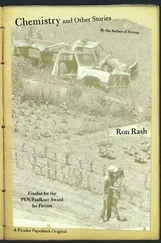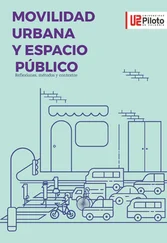"Damn good job whoever tied this," Doctor Cheney said, and turned to Pemberton.
"You'll have to get him to the hospital if he's to have a chance," the doctor said. "Do you want the bother of that or not?"
"We need the train here," Pemberton said.
"I'll take him in my car," Campbell said.
Pemberton turned to Serena, who watched from the caboose door. She nodded. Campbell motioned to the worker who'd helped bring Galloway in. Together they lifted the injured man off the table. They placed his arms around their shoulders and dragged him to Campbell's Dodge, Galloway's boot toes plowing two small furrows in the soaked earth. Only when they got to the car did Galloway rouse himself enough to speak, turning his head toward the caboose door where Pemberton and Doctor Cheney watched.
"I'll live," Galloway gasped. "It's done been prophesied."
As Campbell's car sped off, Pemberton looked for Serena and saw her on the Arabian, already on her way back to Straight Creek. Serena's coat had been left in the woods, and Pemberton noticed several men stared at her stomach in amazement. He suspected the workers thought of Serena as beyond gender, the same as they might some phenomenon of nature such as rain or lightning. Doctor Cheney had been as oblivious to her pregnancy as the rest of the camp, reaffirming Pemberton's belief that the physician's medical knowledge was pedestrian at best.
Pemberton was about to return to his office when he glanced toward the stringhouses and saw Galloway's mother on the porch, her clouded eyes turned in the direction of all that had just transpired.
***
A week later Galloway walked back into camp. He'd witnessed enough men hurt to know Pemberton Lumber Company took no charity cases, especially when every day men arrived begging for work. Pemberton assumed Galloway had come to get his mother and take her back to their old home on Cove Creek. But when Galloway came to his stringhouse, he did not pause but kept walking, his body listing slightly rightward as if unwilling to acknowledge the lost hand. He left the valley and crossed the ridge to where the timber crews worked. For a few moments Pemberton contemplated the possibility that Galloway planned to avenge the loss of his left hand, not necessarily a bad thing since it might make other workers more careful in the future.
Pemberton was in the back room with Doctor Cheney when Galloway returned, walking beside Serena and the stallion. It was almost full dark, and Pemberton had been watching out the window for her arrival. Serena and Galloway passed the office and went on to the stable, Galloway adjusting his gait so he stayed beside the Arabian's hindquarters. They came out a few minutes later, Galloway still lagging behind Serena in the manner of a dog taught to heel. She spoke to him briefly. Then Galloway walked toward the stringhouse where his mother was.
"We need to keep Galloway on the payroll," Serena said as she sat down and filled her plate.
"What good is he to us with just one hand?" Pemberton asked.
"Anything I bid him do. Anything."
"A right-hand man with only a right hand," Doctor Cheney said, looking up from his supper. "And for a left-handed woman, no less."
"You'll be surprised, Doctor, what a man such as Galloway can do with just one hand. He's very resourceful, and very willing."
"Because you saved his life?" Cheney asked. "As one who has saved numerous lives, dear lady, I can assure you such gratitude is fleeting."
"Not in this instance. His mother prophesied a time when he would lose much but be saved."
Doctor Cheney smiled. "No doubt a reference to some brush arbor meeting where his soul would be saved for the contents of his billfold."
"Saved by a woman," Serena added, "and thus honor bound to protect that woman and do her bidding the rest of his life."
"And you believe you are that woman," Doctor Cheney said, mock disappointment in his voice. "I would have assumed a woman as enlightened as you would deny belief in augury."
"What I believe doesn't matter," Serena said. "Galloway believes it."
TWO MORE ACCIDENTS OCCURRED THE FOLLOWING week on Shanty Mountain. A log slipped free of the main cable line and killed a worker, and two days later the skidder's boom swung a fifty-pound metal tong into a man's skull. Some workers began wearing hand-whittled wooden crosses around their necks while others carried rabbit's foots and loadstones, salt and buckeyes and arrowheads and even half-pound iron horseshoes. Still others carried talismans for specific dangers-mad-stones to stop bleeding, mistletoe to avoid lightning strikes, agates to prevent falls, all manner of lucky coins, playing cards from deuce to ace set rakishly in their hat-bands. Several men were Cherokee and brought their own charms, fairy crosses and feathers, certain plants. A few believed the best response to the rash of accidents was a stashed whiskey bottle. Some adopted the bright and various coloration of Snipes and could be seen from great distances as they ascended the slopes, resembling not so much loggers as a tribe of deposed harlequins en route to a more hospitable court. Several men threatened to quit. Most grew more careful but still others grew less cautious, resigned to a violent end.
Snipes' crew worked a gap in Big Fork Ridge that looked as though a monolithic block wedge had parted the escarpment into two sections. A small creek ran through the gap and trees lined it, a few yellow poplars but mainly sycamore and birch and hemlock. Snipes and Campbell hadn't believed the trees worth the bother to harvest. To do so would be slow going, and particularly dangerous since they'd be working in close proximity to one another. But Pemberton insisted.
After another close call when a log slipped free of its tongs, Snipes gave his men a break. It wasn't time for one, but the foreman figured the fifteen minutes would cost Pemberton Lumber Company less than the time it'd take to haul an injured man back to camp. The workers gathered beside the creek.
Though it was early afternoon, little light fell into the gap. The sparse-leaved trees rose around them bleak and skeletal, particularly sycamores that the winter had bleached white. The men had been in the gap since noon yesterday, and Snipes believed the unrelenting gloaming put the workers in a darker more fatalistic state of mind, less careful than they otherwise might be. He felt it provident to make the crews aware of this.
"They's a philosophical reason the positive outlook is called a sunny disposition," Snipes said, his face tented by the newspaper he perused. "Anybody that's out in a place where the sun lays on you all day ain't got a care in the world."
Ross finished sifting tobacco onto his rolling papers and looked up.
"So if I was out in the middle of the desert and had no water and there wasn't any for miles I'd not have a care in the world," Ross said, then returned his attention to the construction of his cigarette.
"That ain't exactly what my notion is," Snipes replied, lowering his newspaper and looking at Henryson as well. "I'm saying the amount of sun you get can affect how you feel. You get down in a gloomy place like this and it's like what's outside gets inside you."
"Maybe that's what wrong with Preacher McIntyre," Stewart said. "He growed up in the most way-back holler in this county. He told me once it was so darksome in there they had to use a crowbar to get any light in."
"How's McIntyre doing?" Dunbar asked.
"Well," Stewart said. "They let him out of the nervous hospital over in Morganton last Friday. Now he's home under the bed covers most all the time, and he don't let ever a word come out of his mouth."
"Tell his missus to prop him up in the cornfield on a stick," Ross said. "He can get himself a sunny disposition whilst he's keeping crows out of the corn."
Читать дальше












